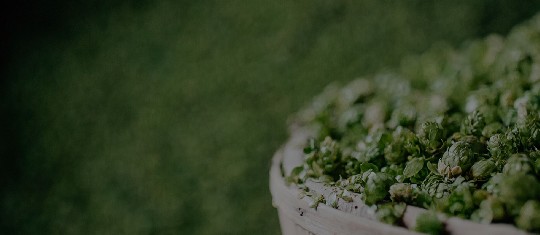This year we are once again bringing you closer to the Hallertau with our entertaining HopUpdates video, produced directly on-site in the hop fields by our experts. With the HopUpdates, you will learn first-hand about plant development and the outlook for the new hop harvest.
We are now back in the Hallertau region, specifically on the eastern edge of the Hallertau at the Haimerl farm. We are here at a trial field of LfL Hop Breeding Hüll to take a closer look at what they are up to.
At the Hüll hop breeding, up to 100,000 seedlings are sown each year and selected for resistance. The most promising then make it into the extended trial cultivation on the experimental farms. Today we are at the farm of Alois Haimerl, who is trying out the most promising Hüll breeding lines for us. It is here we find the variety Tango, which we would like to present to you in more detail today.
By now the hops are in development stage 65, which means that they are mostly in full bloom. You can see here very nicely the hop flowers that have opened, and from these later develop the cones.
The hops have meanwhile stopped growing in terms of length and have also largely reached trellis height - apart from a few exceptions in the case of the Perle and Tradition varieties, which started blooming prematurely due to the extreme drought and the heat and were therefore unable to reach trellis height completely.
This is a good example of how important hop breeding is. We are in a trial field here, we have a wide variety of breeding lines from Hüll here, including the Tango variety, the latest Hüll aroma breeding, in which in addition to the Hallertau Tradition variety, some U.S. material has also been crossed in, making this variety very heat- and drought-tolerant.
It also performs very well in an extreme year like this one - you can see it over here - and by the way, the Tango variety is also powdery mildew resistant, downy mildew tolerant, and this allows the hop grower to reduce pesticide use to a minimum.
The Tango variety is therefore the perfect variety in terms of sustainability and adaptation to climate change. It is therefore all the more important that brewers also embrace this variety and that it can find its way into beers.
Thank you for your interest in our July Hop Update! In August, we have set our sights on the topic of organic hop cultivation - and of course by then we will already know more details about the harvest.
We are looking forward to it and hope you are too!


